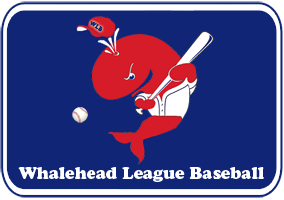
OK, after thinking about things (and in consultation with those of you who contacted me on the subject), I’ve decided to make, hopefully, the last change to how we update ratings. If your head is spinning I apologize. Since we’re still relatively new to OOTP (and the game’s many options), it’s understandable that it has taken a little while for us to tweak things to our liking.
What are we changing?
Essentially, we’re not going to wait until the new game comes out in March to update potentials. Instead, we will only update in October.
Since we already updated everyone in October, this change won’t really impact us much this year. We’ll play through with the current ratings. We’ll update everyone fully (both OVR and POT) in October 2021 (like we did this past October).
Major leaguers (130 PA and 30 IP) will be updated to the OOTP 22 end-of-season ratings. Everyone else will be updated to 50% of their ratings at the end of our 2021 season and 50% with their end-of-season OOTP ratings, which don’t change very much from March.
If you recall, last October, because of some of the complaints about how some minor leaguers’ values were diverging from real life, we reset all minor leaguer back to OOTP 21’s March ratings. We also decided to update them in the future to a 50%/50% mix of end-of-season ratings and their ratings within our game at the end of the year. By updating in this manner we’d retain some in-game development while keeping minor league players tethered to real life a little more.
So what’s the impact?
By not updating Potentials in March, we revert the timeline of our league back a little and make it a little more like Dynasty/Strat/PtP and Diamond Mind.
As you recall, in those games we played with players’ ratings based on the previous season. Our 2018 season, for example, was based on MLB 2017 statistics.
In the first year of playing OOTP, we updated all players to the new March ratings. Essentially, this moved our league timeline from the previous season to the upcoming season because the OOTP March ratings are based on projections.
By not updating in March, our major league players in 2021 will be rated based on their OOTP 2020 end-of-season (live updates) and the game’s development changes. In 2021 our minor league players will be rated based on the OOTP’s 2020 March ratings and the game’s development changes.
Starting for our 2022 season, our minor league players will be rated based on 50% of OOTP’s 2021 October end-of-season live ratings and 50% of our 2021 season’s ratings.
What are the tradeoffs?
Advantages
Since we won’t be changing the ratings in March, our decisions in the off-season will be more predictable and reliable. We can then move through the off-season quicker and begin our seasonS earlier.
Disadvantages
Player value for minor leaguers will lag behind real life. Unlike season one when players like Ronald Acuna would burst on the scene in our league around the same time as they did in real life, minor leaguers will typically impact our seasons a year later. (Of course, if they develop quicker in our game, that timeline might be faster or slower.) Since historically we’ve primarily been interested in competing with major leaguers, shifting the impact of minor leaguers back a little shouldn’t be a big deal.
Final Thoughts
In Dynasty/Strat/PtP, we played based on the previous season. Minor league players, who were uncarded, did not play at all. Using OOTP, minor leaguers can play. Based on feedback over time (some of you did not like having some minor league player values differ from real life), we decided to adjust the way minor leaguers were rated. This change simplifies the rating process (especially for me, using Access I can automatically update everyone once a year) and allows us to start the season much earlier.
The off-season can end in January. We can start play in February. Since those are the least busy times of year for most of us, the change will give us something to do in the dog days of winter and free up the weekends for family stuff, which will once again be important when Covid-19 gets eradicated.

Be the first to comment